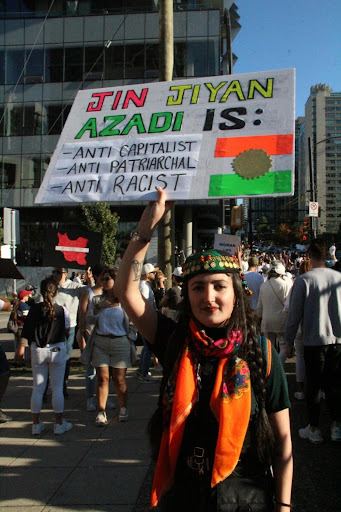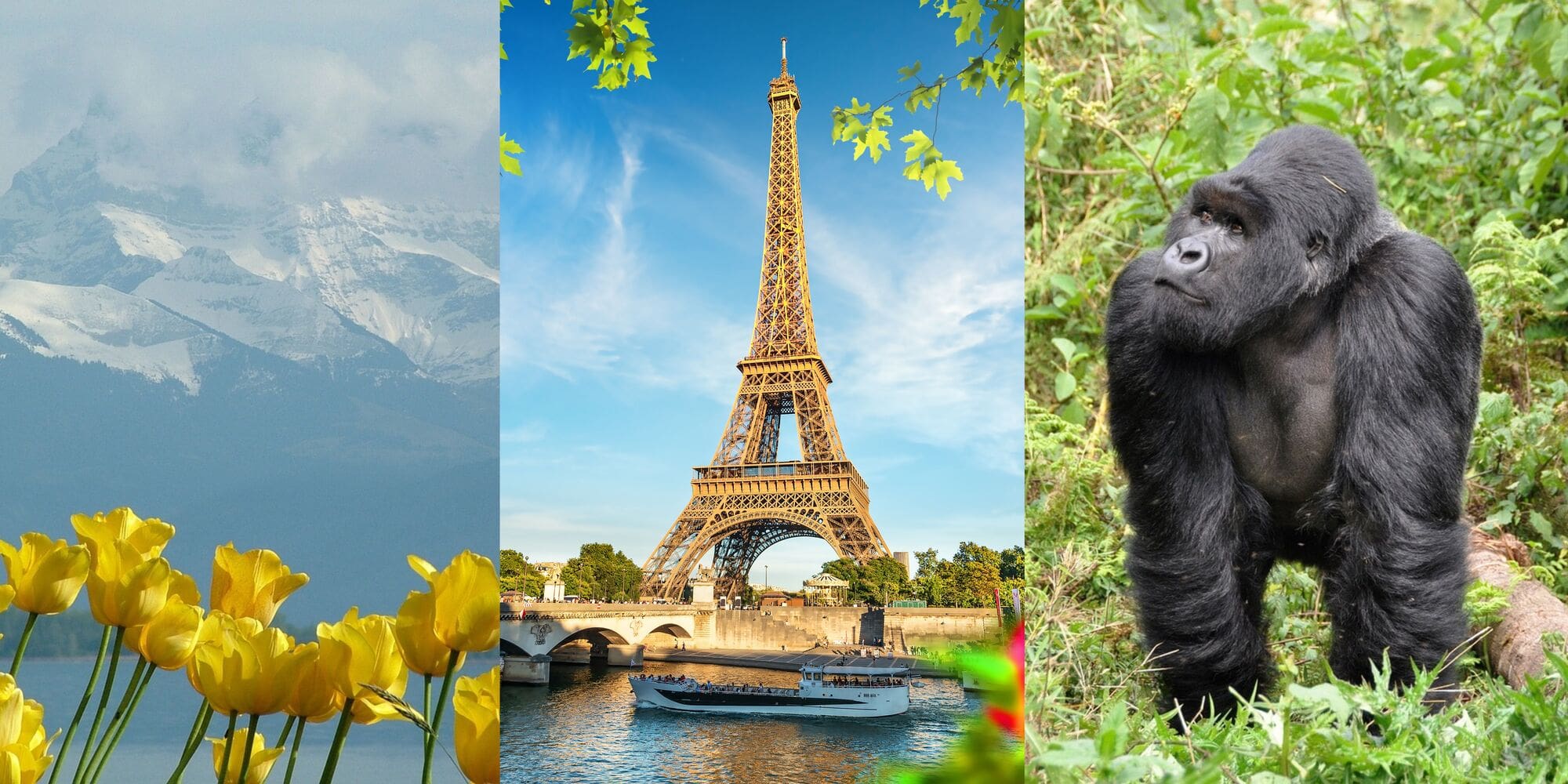
Courage In The Impossible: Gaza’s Poets Speak
Amidst Gaza’s turmoil, poets’ voices resonate. Explore Palestinian poetry’s power and resilience.


Blog contributor: Maria Thomas
NaTakallam is marking International Women’s Day and Women’s History Month by highlighting some of history’s most celebrated feminists. This week, join us as we take a look at 5 incredible Arab feminists we all need to know.
Nawal El Saadawi was an Egyptian feminist writer, activist and physician. Her works such as The Hidden Face of Eve (الوجه القاري للمرأة العربية, Al-Wajh al-qari lil-mar’a al-‘arabiyyah), A Daughter of Isis, and Memoirs of a Woman Doctor have over the years become a cornerstone of Arab feminism. In Saadawi’s own words, her writing was a weapon which she exercised against the autocratic power of state and that of the father or husband figure in the family.
‘‘The written word is an act of rebellion, against injustice exercised in the name of religion, or morals, or love.’’ – Nawal El Saadawi (A Daughter of Isis)
Professor Fatema Mernissi was a Moroccan writer and sociologist. Her works include her revolutionary book Beyond the Veil (1975), a fictional memoir, Dreams of Trespass: Tales of a Harem Girlhood (1994), and The Forgotten Queens of Islam (1990). Her scholarship thwarts the popular notion that female subordination is rooted in religious texts and argues that this misunderstanding ‘‘sprang from centuries of misinterpretation by male leaders intent on maintaining the sexual status quo’’. Mernissi was a pioneer of Islamic feminism and inspired Muslim women, especially those from humble backgrounds, in their struggles for human dignity, equality and social justice.
Sahar Khalifeh is a Palestinian writer known for her gripping novels such as Wild Thorns (الصبار, Al- Sabaar), The Inheritance (الميراث, Al-Mirath), and My First and Only Love (حبي الأول, Hubbi al-Awaal). Her writings focus on female characters with strong personalities. She masterfully connects the plight of the nation with that of women, pointing out that the devaluation of women obstructs nationalist ambitions.
‘‘I could see very clearly that the debacle of 1967 was the fruit of a rotten tree that needed a cure – the internally defeated do not triumph. The cure must start with our households and with those in power, with our social values and ties, with the fabric of the family, with the rules and basics of the upbringing of the individual at home, in school, and at university, and then progress to the street.’’ – Sahar Khalifeh (My Life, Myself, and the World)
Ghada al Samman is a Syrian journalist and novelist, best known for her sublime short stories. Her writings are collected in volumes such as عيناك قدري (Aynak qadiri, ‘‘Your eyes are my destiny’’), لا بحر في بيروت (La bahar fi Beirut, ‘‘No sea in Beirut’’), and رحيل المرافئ القديمة (Rahil al-marafi al-qadima, ‘‘The departure of the Old Ports’’). She also wrote two novels – Beirut Nightmares ( كوابيس بيروت, Kwabis Beirut) and ليلة المليار (Laylat al-milyar, ‘‘The Eve of Billion’’). Samman’s works are a bold commentary on contemporary social and political realities. She established the Ghada al Samman Publications in 1977 to publish her own writings free of editorial interference and censorship.
Assia Djebar was an Algerian writer, translator and filmmaker. She is known for works such as La Soif (“The Thirst”), Les Enfants du Nouveau Monde (‘‘Children of the New World’’), and Fantasia: An Algerian Cavalcade (original title: L’Amour, la fantasia). Although her writings are not in her mother tongue – Arabic, she had a keen interest in the language and used French to ‘‘reproduce Arabic rhythms’’. Her writings explore the struggles she knew both as a feminist living under patriarchy and an intellectual living under colonialism and its aftermath.
Learn Arabic and explore the writings of these incredible women with NaTakallam! We are a women-led and women-fueled community that offers language sessions in Modern Standard Arabic and 7+ dialects.
This March, purchase 5+ hours of language sessions and get 1 hour FREE – as a gift to you or perhaps – to mark the occasion – an amazing woman in your life.
This piece was contributed by Maria Thomas, a copywriter with NaTakallam. She is currently pursuing her doctoral studies in art history. In her spare time, she enjoys reading, powerlifting and going on hikes.
Reimagine your language journey with NaTakallam.
Try a session in Arabic, Armenian, English, French, Kurdish, Persian or Spanish.
Languages open doors and minds. Discover new worlds.
Learn Arabic, Armenian, English, French, Kurdish, Persian or Spanish.
Deep dive into a language, packed with culture. Personalized to you.
Choose from Arabic, Armenian, English, French, Kurdish, Persian or Spanish.
Deep dive into a language, packed with culture. Personalized to you.
Choose from Arabic, Armenian, English, French, Kurdish, Persian or Spanish.
You might also LiKe

Amidst Gaza’s turmoil, poets’ voices resonate. Explore Palestinian poetry’s power and resilience.

Since the start of the ongoing Mahsa Amini Protests, we’ve heard the slogan “Woman, Life, Freedom” travel around the world. In Persian this is “zan, zendegî, âzâdî” (زن, زندگی, آزادی), but the slogan originates in the Kurdish language and the Kurdish struggle for autonomy.

A smattering of French slang from around the world! Learn more expressions like this with NaTakallam’s native speaking tutors.

Spanish is one of the fastest growing foreign languages in the world. Get access to the Spanish business world with our native tutors – tailored to your needs.
Improve your proficiency in Farsi or Dari & contextualize your learning with cultural insights from our native tutors. Language & culture go hand-in-hand at NaTakallam.
Looking to do business with Kurdish businesses? Learn with NaTakallam’s native speakers & reach new language (& business) goals – tailored to your professional needs.
Gain an edge with contextualized French learning by native tutors from displaced backgrounds. Flexible, with cultural & business insights, tailored to your needs.
Choose from Eastern Armenian or Western Armenian. Get quality teaching & unique insights from native tutors. Gain an edge with Armenian language skills.
Offer your team a smoother integration or transition with our customized English lessons delivered by bilingual tutors with extensive English instruction experience.
Choose from Modern Standard Arabic or any of our 7+ dialects offered by native tutors across the region. Take your proficiency to the next level & connect with the Arab business world.